The Faculty of Media and Communication will be welcoming Dr. John Willison from the University of Adelaide for a series of researcher development training open to all academic staff, PGR’s and colleagues in RKEO.
Dr Willison is a highly engaged and widely published academic whose expertise include the creative blending of teaching and research, researcher development and the evolution of research-oriented curricula. He is a senior lecturer in the Department of Higher Education, School of Education at the University of Adelaide, South Australia, where he coordinates the Graduate Certificate in Higher Education (GCHE) for academics from all faculties. He is currently leading a major initiative funded by the Office for Learning and Teaching considering Research Skill Development (RSD) and assessment in undergraduate and postgraduate degrees across disciplines from all faculties.
Dr Willison’s principal research interest centres on the ways that academics conceptualise and implement the development of their students’ research skills in content-rich courses. He examines the close conceptual connection between the skills associated with research in a discipline, and the skills required and developed in problem-solving, critical thinking, clinical reasoning and Work Integrated Learning. His research with graduates from various disciplinary contexts is pointing to the value graduates place on research skills once they are employed.
Click here for further details and a range of resources.
FMC have scheduled a series of tailored training events. The faculty are keen to hear the discussion and share new thinking widely across BU.
All events will take place in the Fusion Building, Talbot Campus – Room F201
The sessions are outlined below:
Thursday 29th June
Session 1: 10.00-12.00: Research Skill Development First Year to PhD
This workshop will be of interest to all academics at BU. It provides an introduction to the Research Skills Development (RSD) framework, which provides a systematic approach to the scaffolding of research into learning for students at all levels. The session will also look at how RSD can be integrated into and complement the Research Development Framework developed by Vitae, which is currently used at BU for PGT and PGR training
Session 2: 14.00 – 16.00 Enabling Research Skill Development for Higher Degree Researchers and Early Career Academics
This workshop will be of primary interest to Deputy and Associate Deans, Heads of Department, Heads of Research, Research Centre Directors, and colleagues in RKEO, amongst others who have a role in the support of postgraduate students and early career academics. It examines how the Research Skill Development (RSD) framework can be used to assist PGR students and ECRs to achieve successful outcomes at these most crucial stages in their academic careers.
Friday 30th June
Session 3: 10.00-12.00: Models for Engaged Learning and Teaching (MELT): MELT your students’ minds
This workshop will be of interest to all academics at BU. It provides an introduction to the Research Skills Development (RSD) framework, which provides a systematic approach to the scaffolding of research into learning for student at all levels. Its main focus is on the adaptation of the RSD framework to meet the particular needs of different disciplines. It will demonstrate how this adaptation can be carried out to enhance the student experience in different disciplines without losing the core strengths and consistency that the framework provides for scaffolding student learning.
Session 4: 14.00 – 16.00 Engaging teachers to enable dynamic student learning
This workshop will be of primary interest to Deputy and Associate Deans, Heads of Department, Heads of Education, Programme Leaders, and colleagues in CEL, amongst others, who have a role in the support of curriculum design, the enhancement of the student learning experience, and the conduct of research into university education. It examines how the Research Skill Development (RSD) framework can be used to scaffold learning and assessment design across curricula at all course levels. It will use data from a series of large-scale research projects that provide a critical analysis of the use of RSD in a wide range of disciplines.
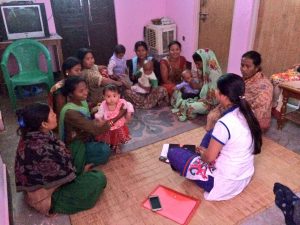 As promised to our audience at the 31st International Confederation of Midwifery Triennial Congress in Toronto today: the slides used on our session ‘Mental health training for community maternity workers in Nepal. The slides in PDF format can be accessed here: Nepal THET ICM 2017. Our project brought together academics, midwives, nurses, and other health workers in Nepal and the UK to help in the training of Auxiliary Nurse Midwives in Nawalparasi on key aspects of mental health and mental health promotion. The project led by Bournemouth University was funded under the Health Partnership Scheme (HPS) which is managed by a London-based organisation called THET (Tropical Health & Education Trust).
As promised to our audience at the 31st International Confederation of Midwifery Triennial Congress in Toronto today: the slides used on our session ‘Mental health training for community maternity workers in Nepal. The slides in PDF format can be accessed here: Nepal THET ICM 2017. Our project brought together academics, midwives, nurses, and other health workers in Nepal and the UK to help in the training of Auxiliary Nurse Midwives in Nawalparasi on key aspects of mental health and mental health promotion. The project led by Bournemouth University was funded under the Health Partnership Scheme (HPS) which is managed by a London-based organisation called THET (Tropical Health & Education Trust).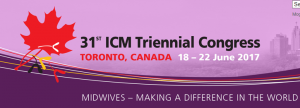
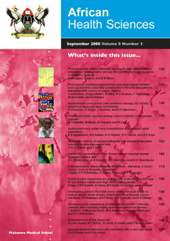

 Kip Jones and Lee-Ann Fenge are pleased to announce that our article to appear shortly in Creative Approaches to Research, a peer-reviewed open-access journal, “Gift Stories How Do We Retell the Stories that Research Participants Give Us?” is now available on
Kip Jones and Lee-Ann Fenge are pleased to announce that our article to appear shortly in Creative Approaches to Research, a peer-reviewed open-access journal, “Gift Stories How Do We Retell the Stories that Research Participants Give Us?” is now available on 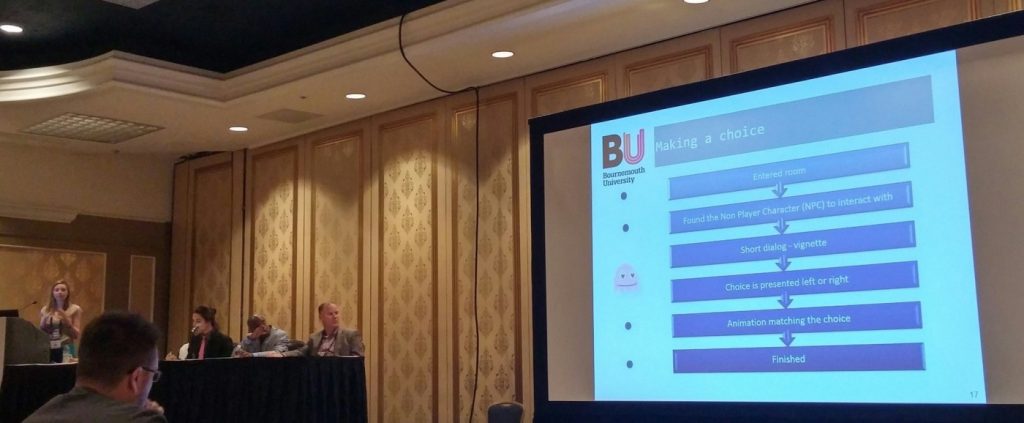 student paper. The research presented was funded by the University Student Research Assistant (SRA) scheme, which involved collaboration between departments and faculties. The research involved creating a game to measure in-game moral decisions. The research team included Jacqui Taylor and John McAlaney from the Department of Psychology, Davide Melacca and Christos Gatzidis from the Department of Creative Technology, and Eike Anderson from the National Centre for Computer Animation.
student paper. The research presented was funded by the University Student Research Assistant (SRA) scheme, which involved collaboration between departments and faculties. The research involved creating a game to measure in-game moral decisions. The research team included Jacqui Taylor and John McAlaney from the Department of Psychology, Davide Melacca and Christos Gatzidis from the Department of Creative Technology, and Eike Anderson from the National Centre for Computer Animation.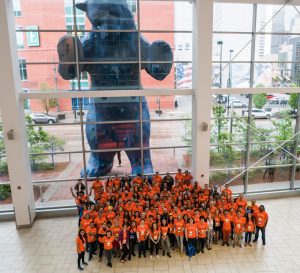
 volunteers with their duties. Sarah found it to be a great experience and highly recommends other students to consider being a student volunteer as a great chance to network and it also helps with funding conferences as the registration fee was waived.
volunteers with their duties. Sarah found it to be a great experience and highly recommends other students to consider being a student volunteer as a great chance to network and it also helps with funding conferences as the registration fee was waived.


 Have a
Have a 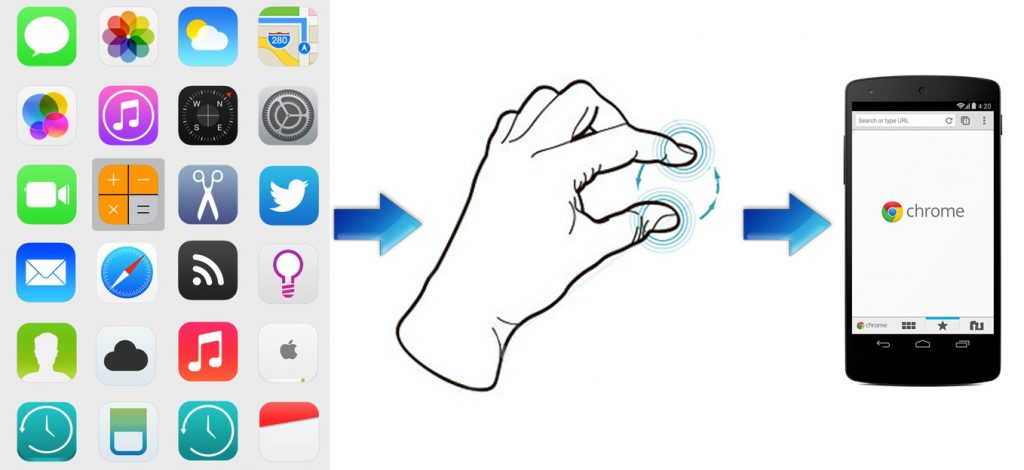
 The
The 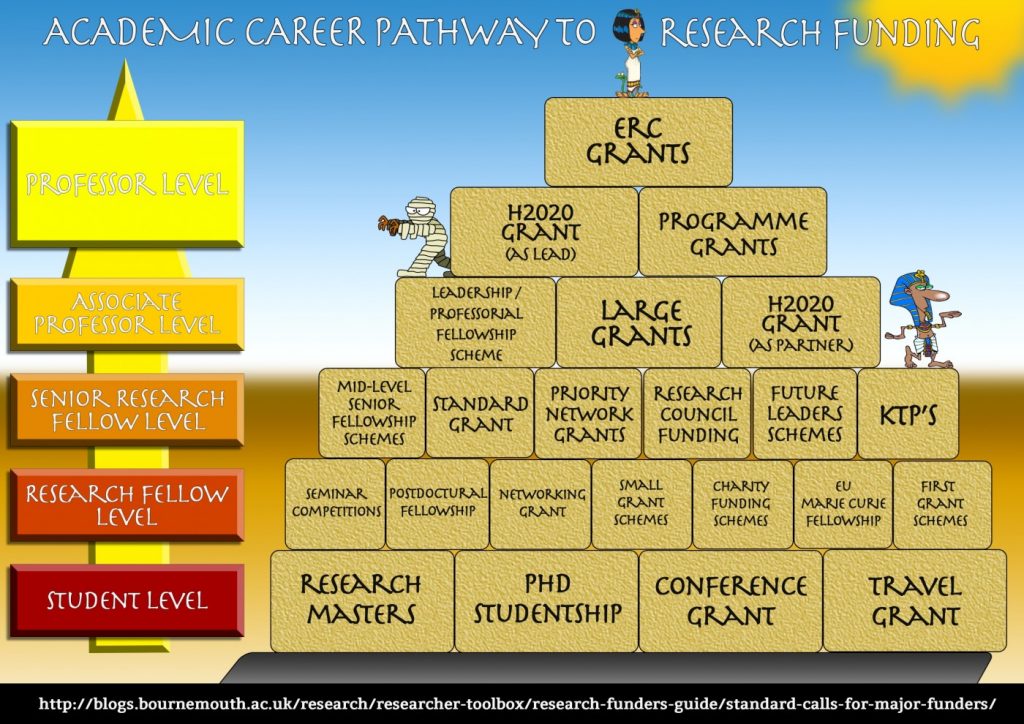
 Live online event on the 8th June 2017
Live online event on the 8th June 2017 TEA AND CAKE AT THE GRADUATE SCHOOL
TEA AND CAKE AT THE GRADUATE SCHOOL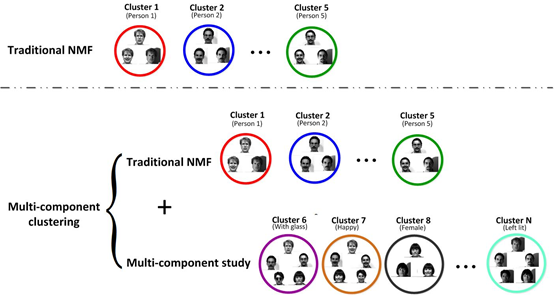











 REF Code of Practice consultation is open!
REF Code of Practice consultation is open! BU Leads AI-Driven Work Package in EU Horizon SUSHEAS Project
BU Leads AI-Driven Work Package in EU Horizon SUSHEAS Project Evidence Synthesis Centre open at Kathmandu University
Evidence Synthesis Centre open at Kathmandu University Expand Your Impact: Collaboration and Networking Workshops for Researchers
Expand Your Impact: Collaboration and Networking Workshops for Researchers ECR Funding Open Call: Research Culture & Community Grant – Apply now
ECR Funding Open Call: Research Culture & Community Grant – Apply now ECR Funding Open Call: Research Culture & Community Grant – Application Deadline Friday 12 December
ECR Funding Open Call: Research Culture & Community Grant – Application Deadline Friday 12 December MSCA Postdoctoral Fellowships 2025 Call
MSCA Postdoctoral Fellowships 2025 Call ERC Advanced Grant 2025 Webinar
ERC Advanced Grant 2025 Webinar Update on UKRO services
Update on UKRO services European research project exploring use of ‘virtual twins’ to better manage metabolic associated fatty liver disease
European research project exploring use of ‘virtual twins’ to better manage metabolic associated fatty liver disease